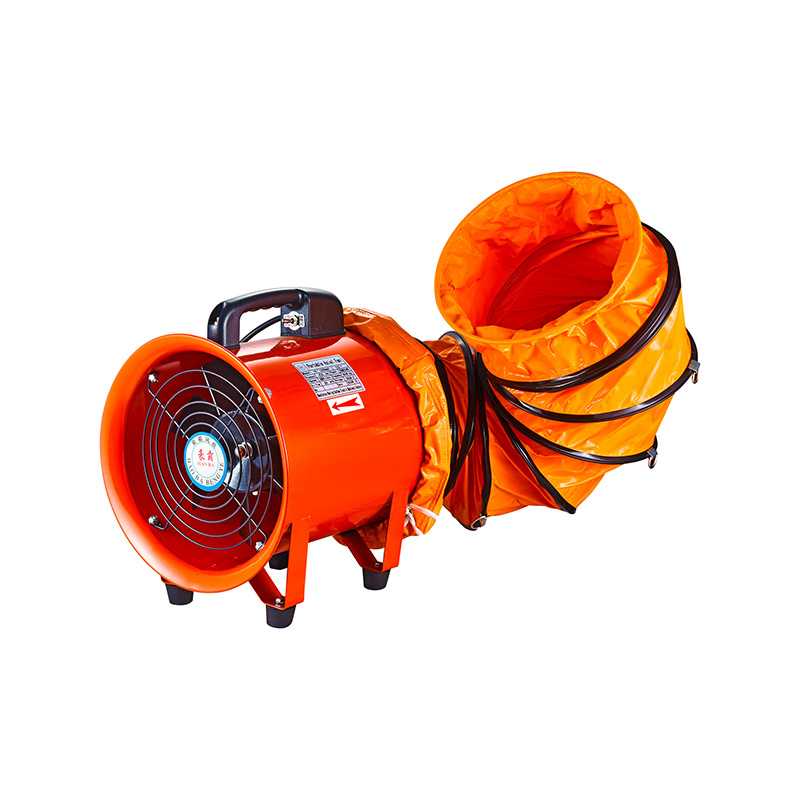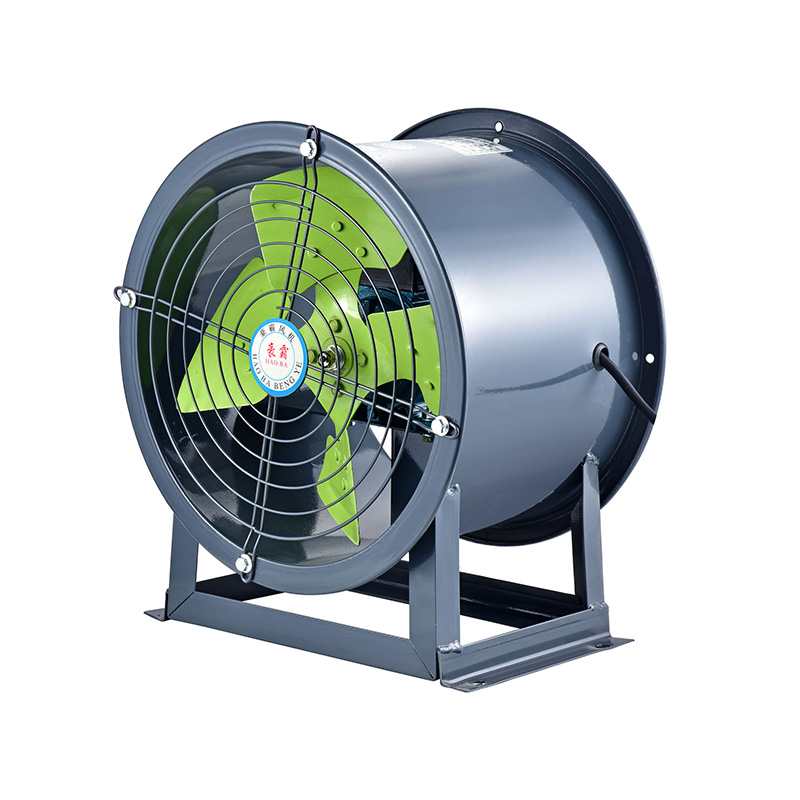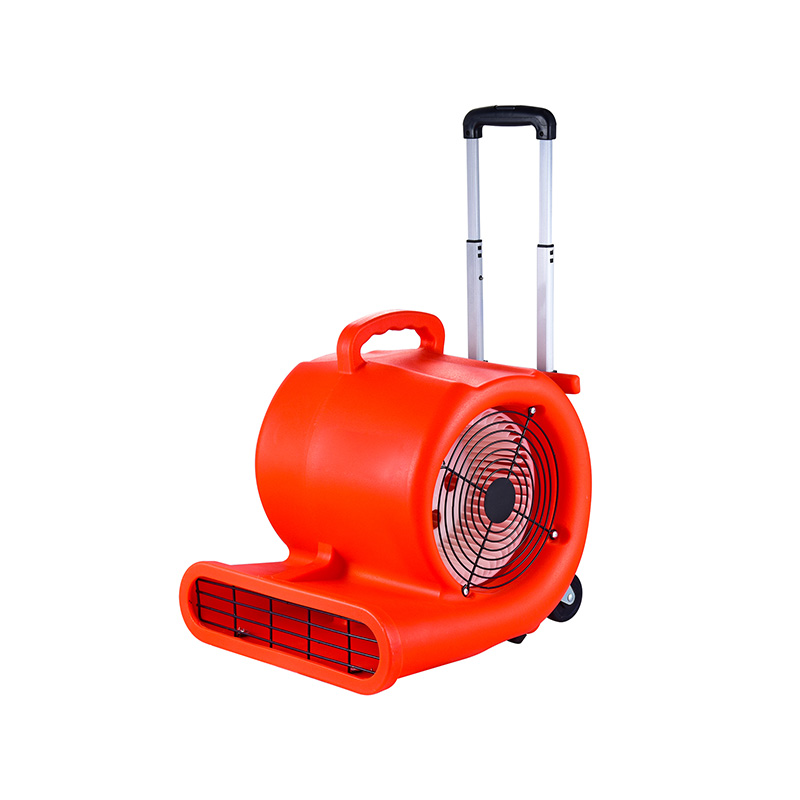When And Why To Replace Fan Filters
2025-07-08
Fan filters play a crucial role in maintaining the performance and longevity of ventilation systems. Whether you are using a high volume low noise fan, an explosion proof centrifugal fan, or a cabinet centrifugal fan, keeping the filters in good condition is essential. Replacing fan filters at the right time ensures not only cleaner air but also efficient operation of the fans themselves.

Over time, fan filters accumulate dust, debris, and other particles from the air. This buildup reduces airflow and increases the workload on the fan motor. For example, a high volume low noise fan, designed to move large amounts of air quietly, relies on clear filters to maintain its low noise levels and efficient performance. When filters become clogged, the fan must work harder, which can increase noise and reduce airflow.
One clear sign that it is time to replace the fan filter is a noticeable decrease in air circulation. If your explosion proof centrifugal fan is installed in a hazardous environment where safety and ventilation are critical, maintaining proper airflow is even more important. A clogged filter restricts air movement and can cause overheating or pressure buildup in the system. This not only impacts the fan's performance but also raises safety concerns.
Additionally, frequent cycling or motor strain in your cabinet centrifugal fan can indicate that the filter is no longer functioning properly. The cabinet design often encloses the fan and motor, so airflow restriction caused by dirty filters can lead to overheating or premature wear. Replacing the fan filter before such issues arise helps avoid downtime and costly repairs.
Filters also affect the quality of the air being circulated. In facilities where air cleanliness is vital, such as cleanrooms or manufacturing plants, using a high volume low noise fan with clogged filters can lead to contamination issues. The filter's job is to trap particles before they enter the fan and ductwork. When the filter is past its service life, contaminants can bypass the filter and spread through the ventilation system, compromising air quality.
Another reason to replace fan filters regularly is energy efficiency. Fans like the explosion proof centrifugal fan consume more power when operating against resistance caused by dirty filters. This increased energy consumption not only raises operating costs but also shortens the lifespan of the fan components. By replacing filters in a timely manner, you reduce strain on the fan, helping it run smoothly and efficiently.
The frequency of filter replacement depends on the operating environment. In dusty or industrial areas, filters may need more frequent attention than in clean or controlled spaces. A cabinet centrifugal fan used in a clean office setting will typically require less frequent filter changes than one installed in a workshop with airborne particulates. Regular inspections help determine the condition of filters and the right replacement schedule.
It is also important to consider the type of filter being used. Some filters have higher dust-holding capacity and longer life spans, but still need to be replaced eventually. Using a high volume low noise fan with filters designed for heavy-duty applications helps prolong filter life, but this does not eliminate the need for periodic replacement. Monitoring pressure drop across the filter is a practical way to know when replacement is necessary.
When replacing fan filters, ensure that the new filters match the specifications of your equipment. For an explosion proof centrifugal fan, the filters must meet safety and durability standards suitable for hazardous environments. Using the wrong filter type can compromise the fan’s performance and safety certification. Similarly, filters for a cabinet centrifugal fan should fit correctly to avoid air bypass and maintain proper filtration.
Ignoring filter replacement can lead to serious issues over time. Accumulated debris can cause fan imbalance, increased vibration, and motor overheating. For a high volume low noise fan, this often results in louder operation and decreased efficiency. The cost of replacing filters is small compared to the expense of repairing or replacing damaged fans.
Regular maintenance programs should include filter checks and replacements. Many industrial and commercial ventilation systems with explosion proof centrifugal fans or cabinet centrifugal fans have recommended maintenance intervals based on hours of operation or pressure drop measurements. Adhering to these recommendations helps maintain consistent airflow, energy efficiency, and air quality.
In conclusion, knowing when and why to replace fan filters is key to ensuring the longevity and proper function of your ventilation equipment. Whether using a high volume low noise fan, an explosion proof centrifugal fan, or a cabinet centrifugal fan, clean filters keep airflow steady, protect fan components, and maintain indoor air quality. Paying attention to filter condition and replacing filters at the right time supports safe, efficient, and reliable fan operation.

 English
English русский
русский عربى
عربى









